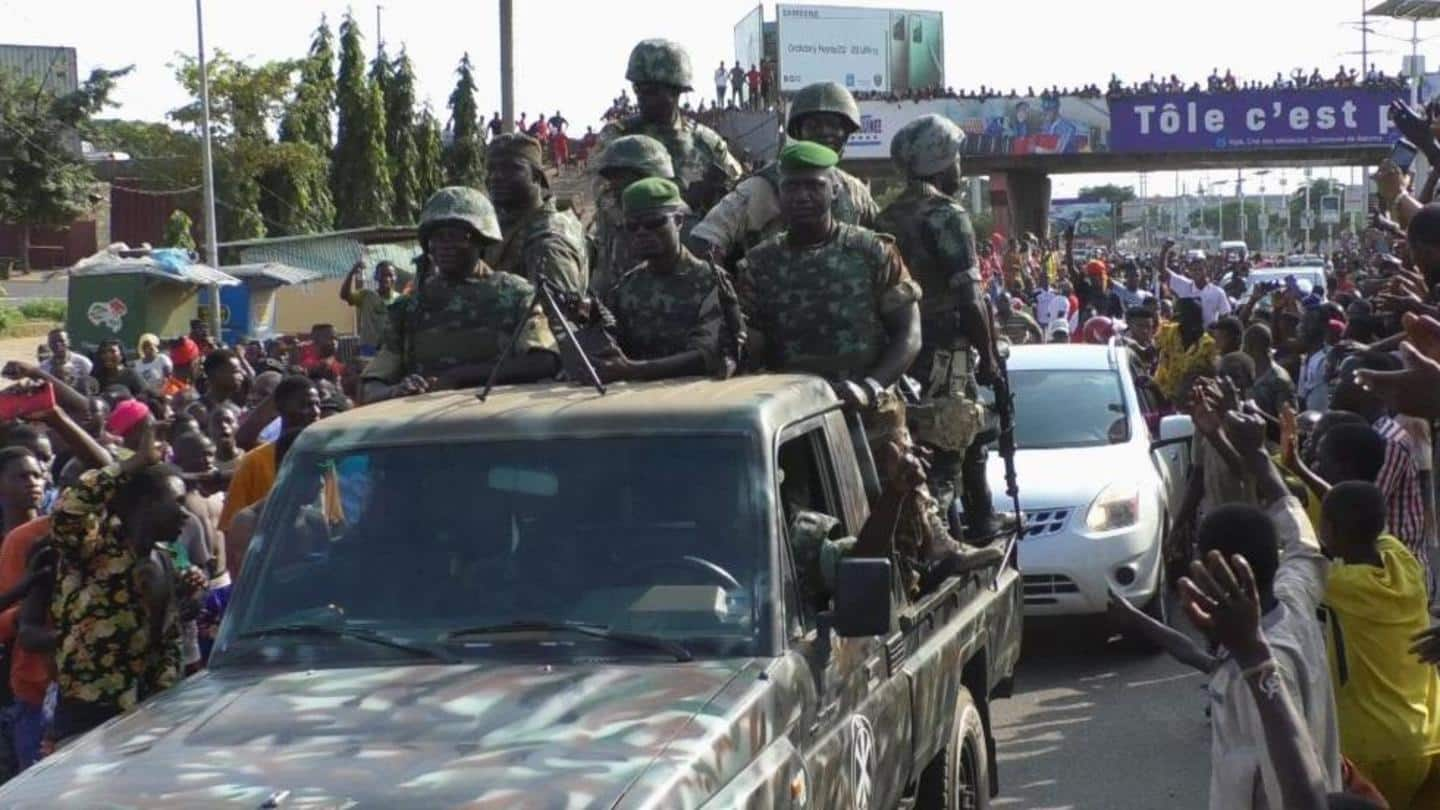
Soldiers detain Guinea's president, dissolve government
What's the story
Mutinous soldiers in the West African nation of Guinea detained President Alpha Conde on Sunday after hours of heavy gunfire rang out near the presidential palace in the capital city, then announced on state television that the government had been dissolved in an apparent coup d'etat.
The country's borders were closed and its constitution was declared invalid.
Duty
We'll no longer entrust politics to one man: Colonel Doumbouya
The constitution was declared invalid in the announcement read aloud on state television by army Col. Mamadi Doumbouya, who told Guineans: "The duty of a soldier is to save the country."
"We'll no longer entrust politics to one man. We will entrust it to the people," said Doumbouya, draped in a Guinean flag with about a half dozen other soldiers flanked at his side.
Announcement
Junta announced plans to replace Guinea's governors with regional commanders
It wasn't immediately known, though, how much support Doumbouya had within the military or whether other soldiers loyal to the president of over a decade might attempt to wrest back control.
The junta later announced plans to replace Guinea's governors with regional commanders at an event on Monday and warned: "Any refusal to appear will be considered rebellion" against the country's new military leaders.
Warning
US State Department urged Guinea's authorities to avoid 'extra-constitutional' actions
The West African regional bloc known as ECOWAS quickly condemned the developments, threatening sanctions if Conde wasn't immediately released. UN Secretary-General Antonio Guterres tweeted that he strongly condemned "any takeover of the government by force of the gun."
The US State Department warned against violence and urged authorities in Guinea to avoid "extra-constitutional" actions "that'll only erode Guinea's prospects for peace, stability, and prosperity."
Other details
Acting in the best interests of the nation: Doumbouya
Doumbouya, who had been the commander of the army's special forces unit, called on other soldiers "to put themselves on the side of the people" and stay in their barracks.
The army colonel said he was acting in the best interests of the nation, citing a lack of economic progress by leaders since the country gained independence from France in 1958.